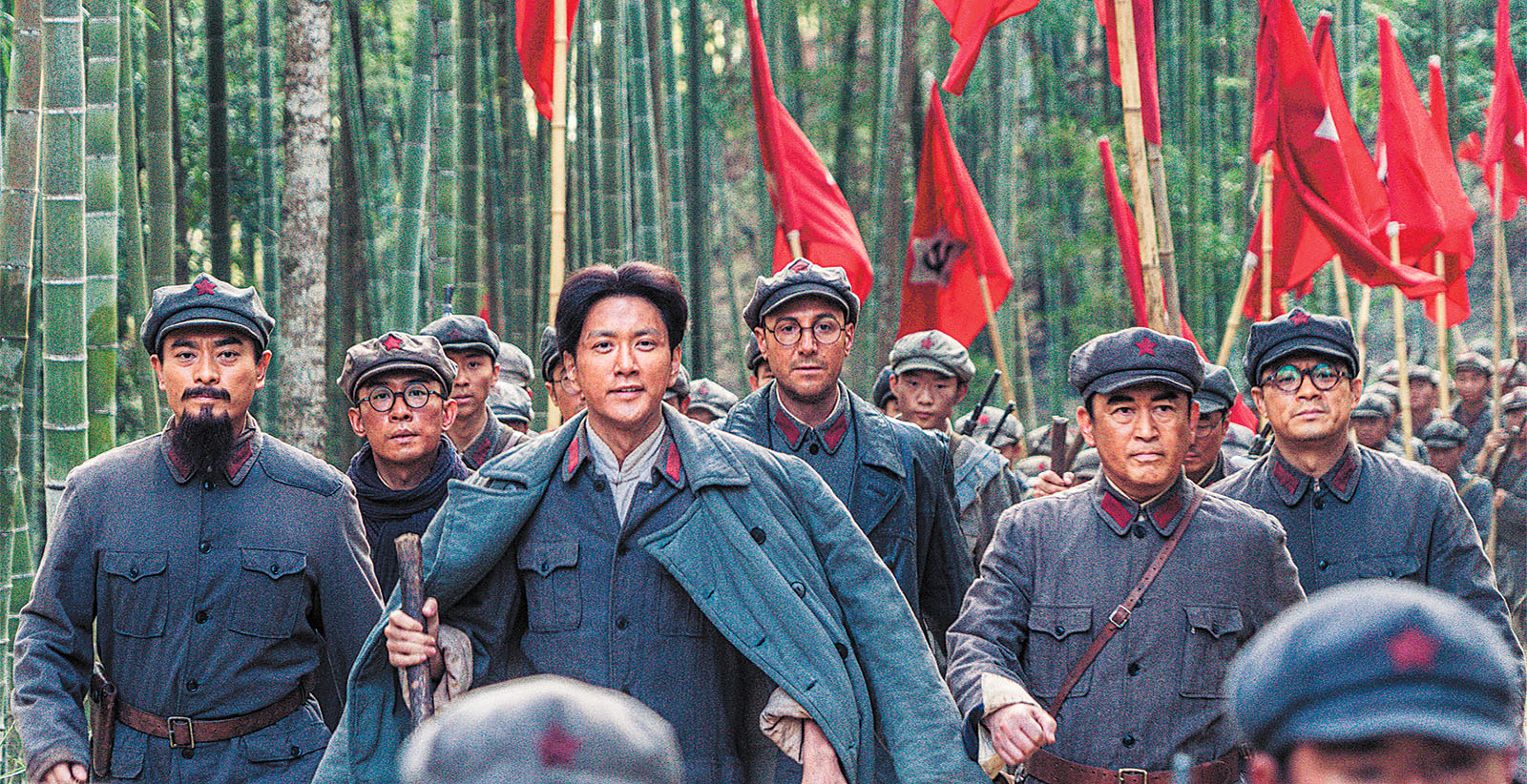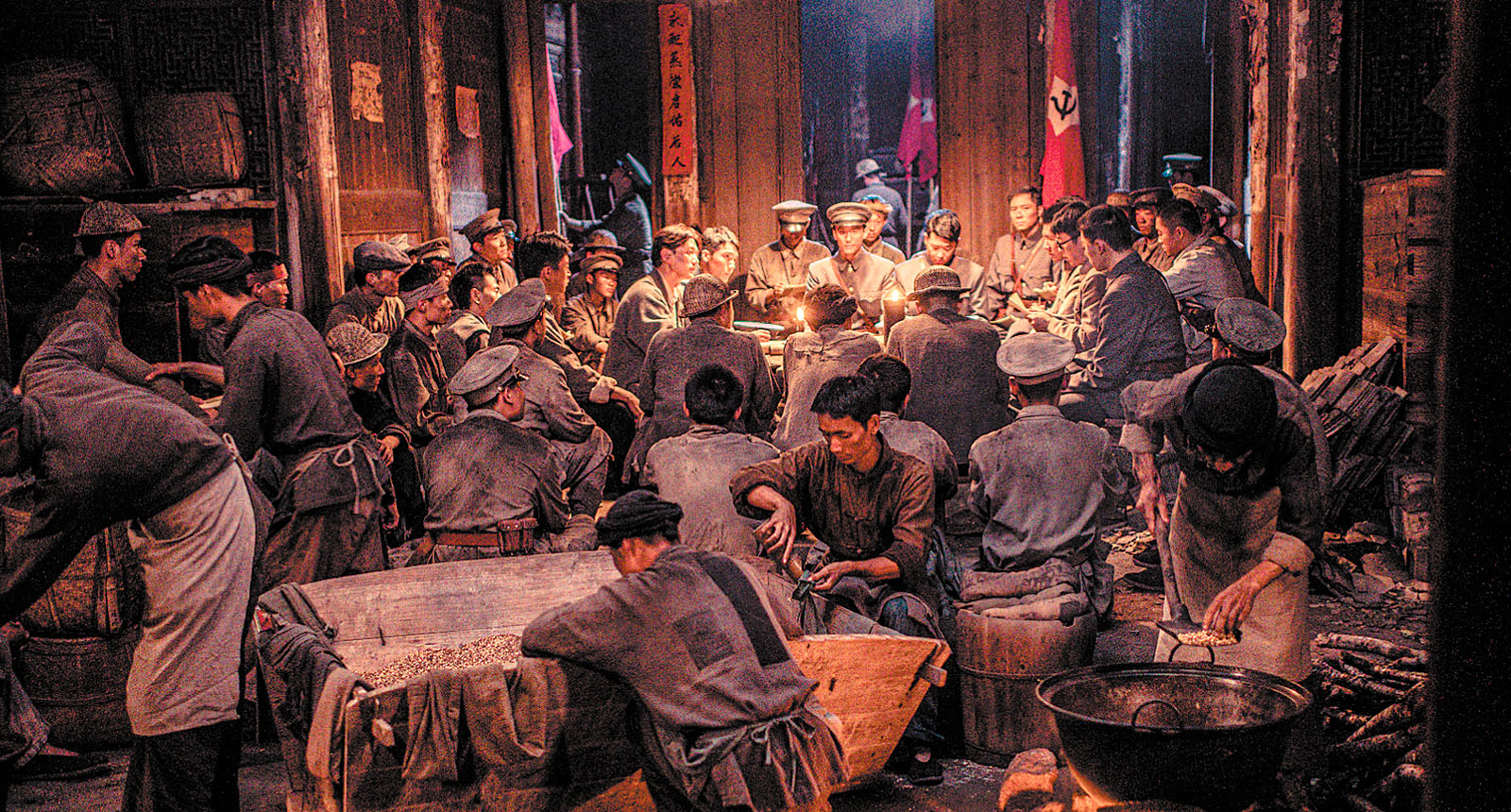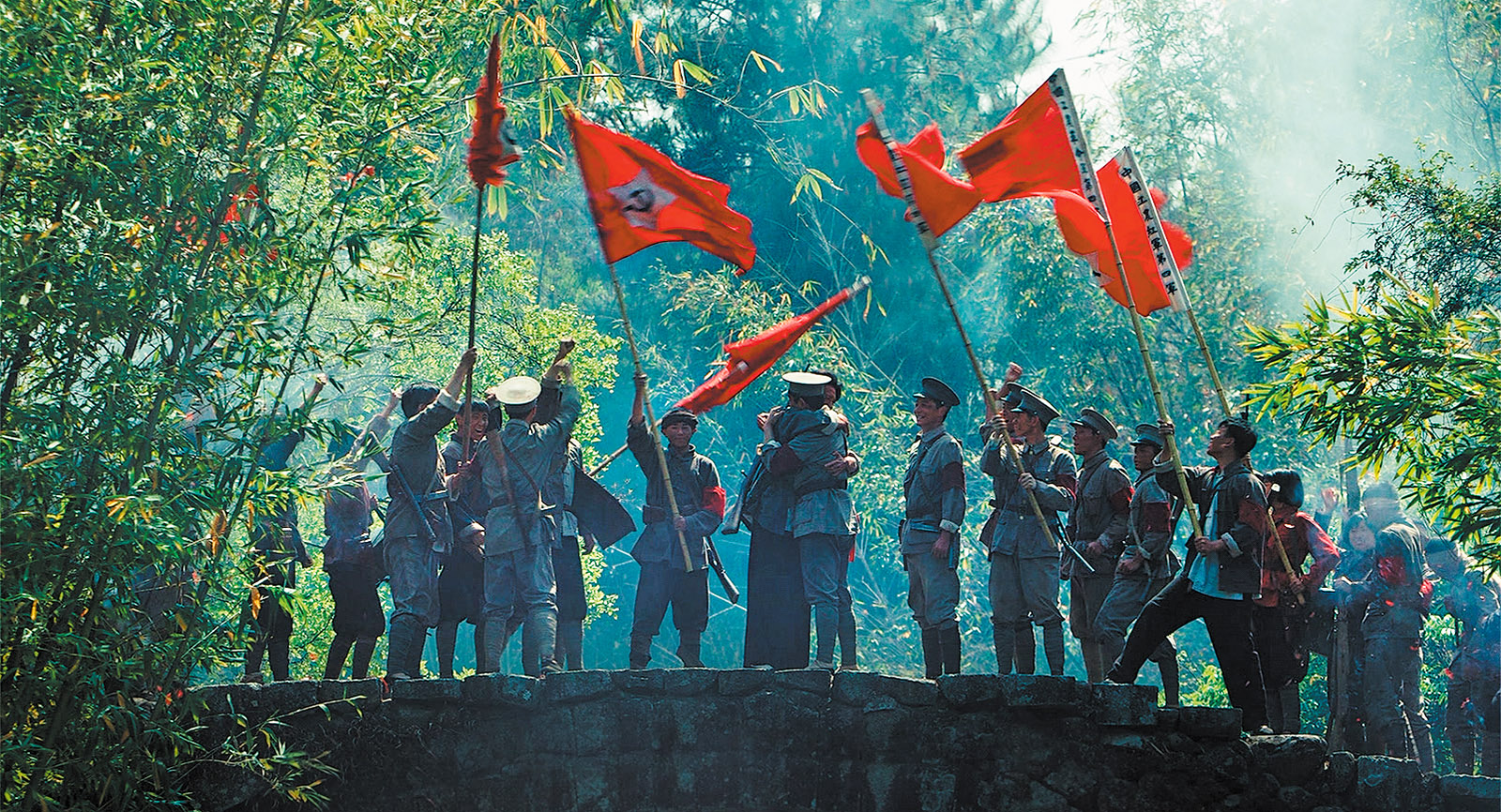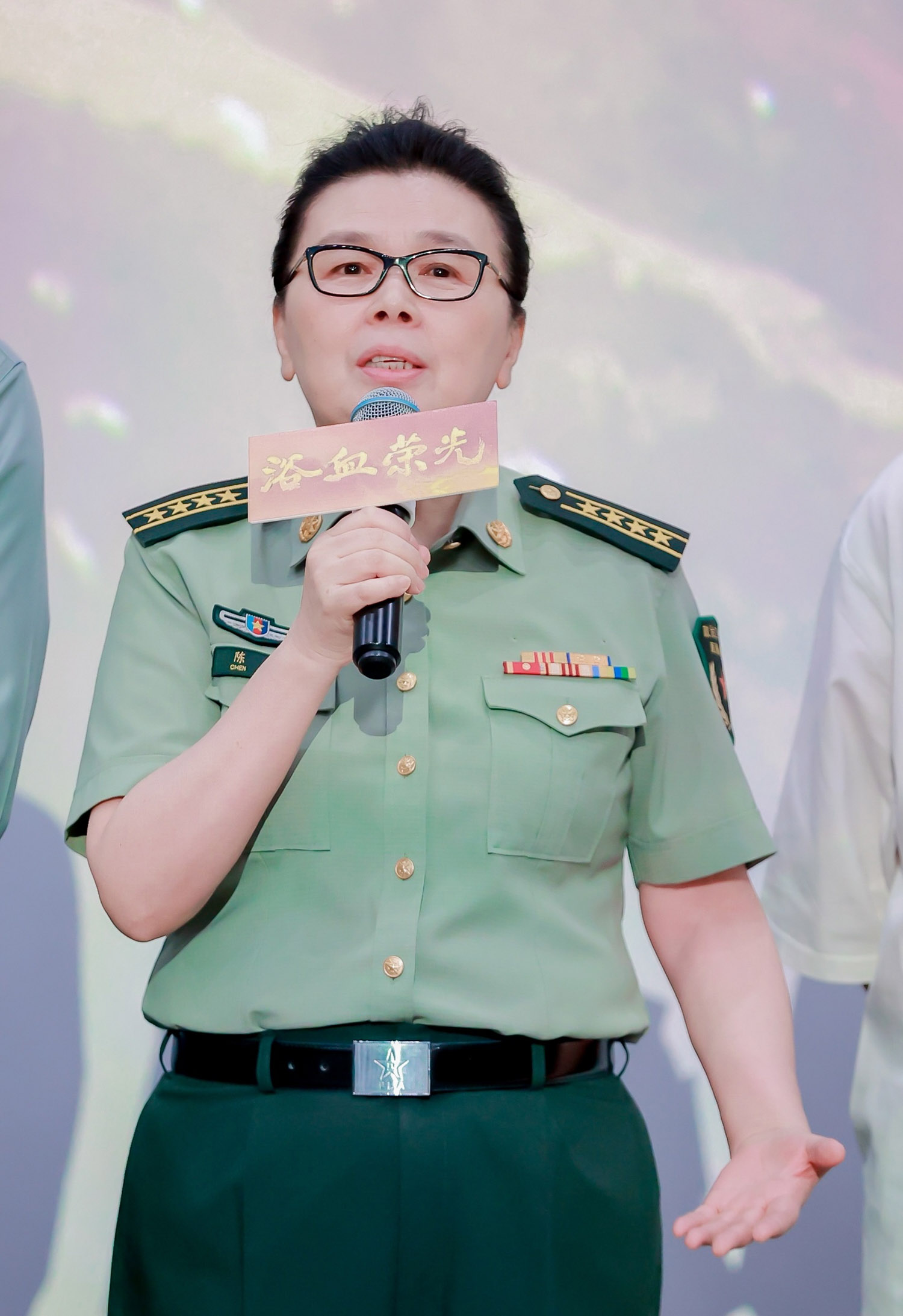Glorious Struggle, a 40-episode revolution-themed TV drama, is both a historical tribute and a reminder that every generation should protect the hard-earned peace, Li Yingxue reports.

Nearly 30 years after his first visit to the Military Museum of the Chinese People's Revolution as a student in 1996, actor Wang Renjun returned last month just ahead of the 98th anniversary of the founding of the People's Liberation Army on Aug 1.
This time, Wang was accompanied by the production team of Glorious Struggle, a 40-episode revolution-themed TV drama in which he portrays Chairman Mao Zedong for the fifth time.
Pausing before the oil painting Autumn Harvest Uprising, Wang was reminded of scenes from the show — battle flags waving in the tumultuous years from the 1927 Nanchang Uprising to the pivotal 1935 Zunyi Conference, which shaped the Communist Party of China's course during the Long March (1934-36).
READ MORE: The red land of yellow earth
In the drama, Mao's steadfast gaze symbolizes hope amid adversity. "Passion, blood, perseverance, fearless courage. … Through this drama, I have experienced my own growth — growing alongside Chairman Mao, growing alongside our people's army," Wang says.

Glorious Struggle airs on CCTV-1 and major streaming platforms including iQiyi, Tencent Video, Youku, Mango TV, Bilibili and Migu. With a peak audience share of nearly 13.7 percent, it has set a new benchmark for revolution-themed dramas.
Breaking from the traditional chronological style, Glorious Struggle uses character-driven narratives to bring history alive. With rich storytelling, meticulous cinematography, and compelling performances, it depicts young Chinese Communists, led by Mao Zedong, holding fast to their ideals amid bloodshed and hardship, overcoming enormous challenges, and ultimately finding a democratic revolutionary path suited to China's realities.
Xiaohongshu (RedNote) user Miya shares how the drama unexpectedly united her family: "This summer, I took my child back to my hometown to spend time with my parents. My father was following Glorious Struggle, so we watched it together. The more we watched, the more hooked we became."
She adds, "A drama about heavy history can bring together three generations — grandparents, parents, and children — sharing tears and laughter in front of the same screen."

At the helm is acclaimed director Chen Li, who has won some of China's highest honors — the Golden Rooster, Huabiao, Feitian (Flying Apsaras), and Golden Eagle Awards. Known for historical works like The Bugle from Gutian and The Story of Zhou Enlai, Chen wanted to link the sweeping Chinese revolution to the personal growth of its leaders.
"Everyone knows Aug 1 is Army Day, and many young people want to know when the first shot was fired and why this day matters. I wanted to tell that story in detail so more young people would understand," Chen says.
She also highlighted lesser-known martyrs such as Lu Deming, Wu Zhonghao and Chen Shuxiang. "They were all so young when they died. Learning their stories moved me deeply, and I wanted to share them."
Chen immersed herself in research, consulting dozens of books and visiting memorials. "The more I learned, the more I felt this was worth doing. In life, you should always do something meaningful," she says.

Faced with numerous figures and events, Chen built the narrative around characters rather than strict chronology. She created the fictional Lin's tailor family to represent the people of western Fujian province, whose sacrifices were immense.
"I have deep feelings for western Fujian, and I wanted this work to express my respect," she says. Chen lived among villagers, collecting story after story in notebooks.
"In that land, history is everywhere — in the words, memories and even objects. Many have fathers or grandfathers who died for the revolution, including those who were working undercover. It touched me deeply," Chen says. The villagers welcomed the crew warmly, forming bonds she will never forget.
Filming took nine months in western Fujian, Hebei, Shanghai, and elsewhere, all real sites. Many scenes unfolded where Mao, military leader Zhu De, and others once stayed. Local extras gave standout performances, motivated by respect for history rather than just the production.

Two months before shooting, the cast and crew lived in western Fujian to study scripts and train in horseback riding and shooting. "I told the actors not to 'act' — but to truly feel what their characters would feel," Chen says.
Wang Zhifei, who plays Zhu De, recalls, "Every day we walked from one mountain ridge to another, following paths the pioneers took. Falling and injuries were common. I kept wondering: how did they overcome such hardships to march toward glory?"
Wang Zhifei's words echoed the entire team's spirit. For eight months, they trekked the dense forests and winding trails, feeling the toughness of revolutionary struggle firsthand.
ALSO READ: Remembering history's turning point
Chen also aimed to connect with young viewers, noting the generation depicted was itself young. "How can we make this an inspiring youth story? They were also a 'boy band' — a revolutionary boy band of their time," she says.
More than a historical tribute, Glorious Struggle serves as a public lesson, a reminder that today's peace was earned through past sacrifice, and that each generation must remain clear-eyed and courageous in protecting it.
Contact the writer at liyingxue@chinadaily.com.cn


